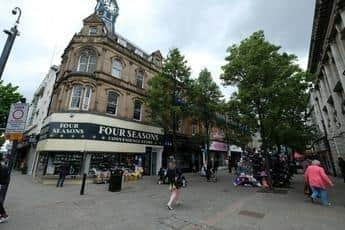Plan for Towns funding will be used to tackle anti-social behaviour and empty shops, says Doncaster mayor
and live on Freeview channel 276
It was announced on Sunday (30 September) that Doncaster will be one of 55 “left behind” areas across the UK to receive £20 million of government funding over ten years.
Announced by Secretary for Levelling Up, Housing and Communities Michael Gove MP, the “Plan for Towns” funding aims to regenerate town centres which have seen decline.
Advertisement
Hide AdAdvertisement
Hide AdLocal people will be able to discuss funding priorities through the formation of a Town Board, which will include local business leaders, employers and politicians.


An emphasis will be placed on regenerating town centres through auctioning empty high street shops, developing ways to improve local public transport and local initiatives to bring people to the city centre.
Mayor of Doncaster Ros Jones said: “This is the type of long-term commitment of funding that I have been lobbying government for over ten years, although a relatively small amount of £2m per year, this will enable us to resource a long-term approach to tackling some of the biggest issues in Doncaster City centre including anti-social behaviour and empty shops. This work will support our Urban-Centre Masterplan.
“I will continue to lobby government for funding to support the regeneration of Doncaster and stand by their pledge to Level Up Doncaster and the North. I would like to thank the constituency MP Dame Rosie Winterton for pressing government for her constituents.
“Towns and city centres are struggling across the country due to the rise in supermarkets and internet shopping, the current cost of living crisis means people have less disposable income.”